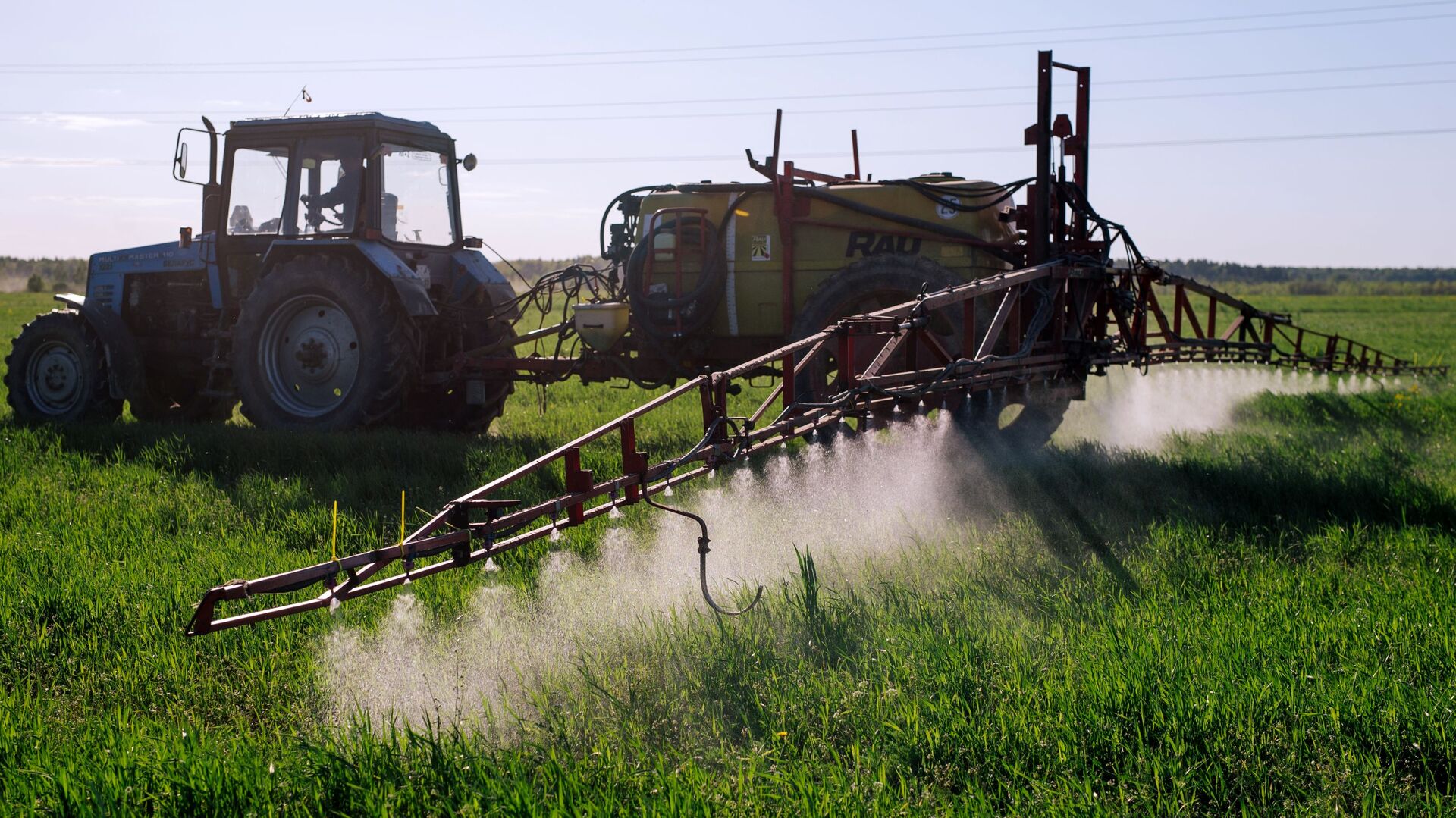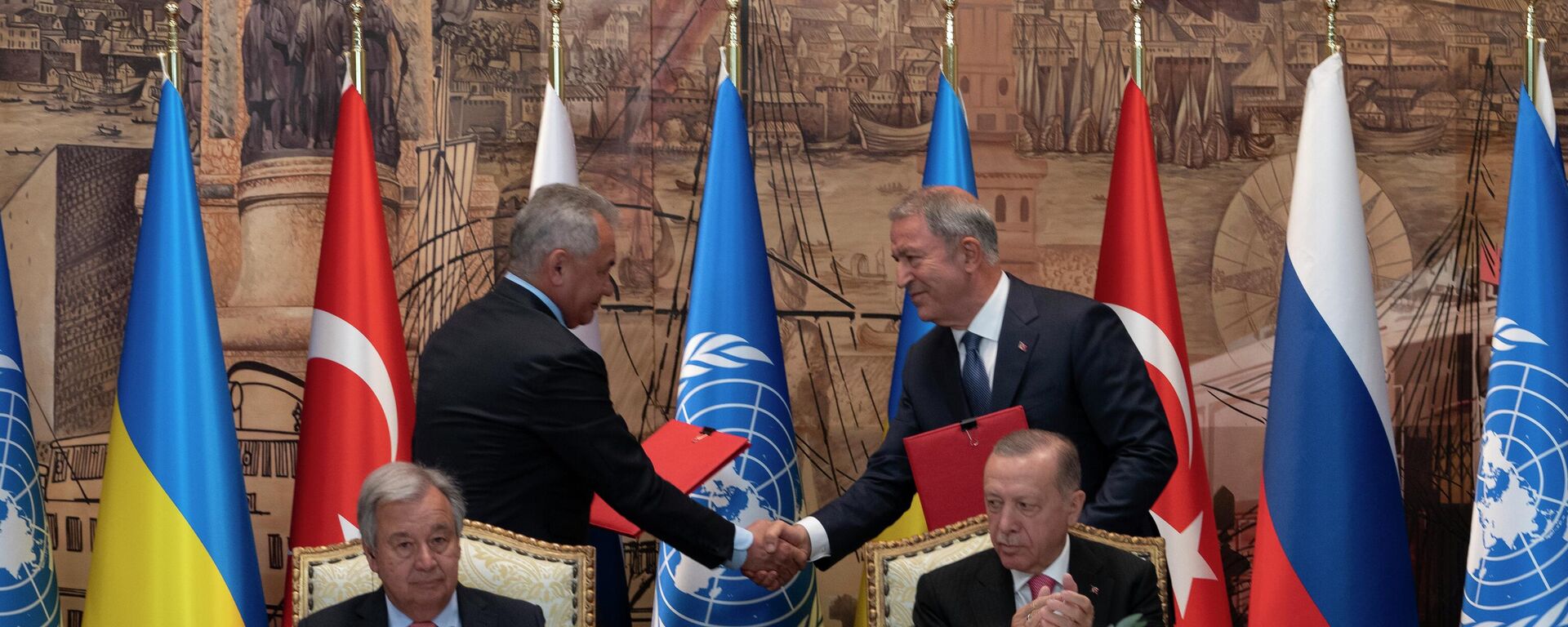https://sputnikglobe.com/20220722/european-commission-proposes-bending-eu-agriculture-rules-to-increase-grain-production-1097710200.html
European Commission Proposes Bending EU Agriculture Rules to Increase Grain Production
European Commission Proposes Bending EU Agriculture Rules to Increase Grain Production
Sputnik International
MOSCOW (Sputnik) - The European Commission proposed on Friday to temporarily bypass some EU agricultural rules to increase grain production and ensure food... 22.07.2022, Sputnik International
2022-07-22T18:41+0000
2022-07-22T18:41+0000
2023-02-09T11:44+0000
europe
agriculture
food security
european union (eu)
https://cdn1.img.sputnikglobe.com/img/07e4/0b/12/1081200023_0:161:3071:1888_1920x0_80_0_0_5753590f8947e94fd0b2d6becc9c70a1.jpg
"We are proposing a temporary short-term derogation from certain agricultural policy rules to: maximise the production capacity for cereals, put back 1.5 million hectares in production," the European Commission said in a tweet.The Commission proposes to derogate from rules on crop rotation and maintenance of non-productive features on arable land."The derogation is temporary, limited to claim year 2023, and restricted to what is strictly necessary to address the global food security concerns, arising due to Russian military aggression against Ukraine, therefore excluding the planting of crops which are typically used for feeding animals (maize and soya)," the EU Commission's press release read.EU member states will now have to review this proposal before it can be formally adopted by the Commission.The aforementioned rules are part of the EU's GAECs (Good agricultural and environmental conditions), which is a set of standards aimed at achieving sustainable agriculture and concern water management, soil and carbon stock, and retention of landscape features. GAECs are adhered to by European farmers that receive financing as part of the common agricultural policy of the EU.
https://sputnikglobe.com/20220722/russia-signs-grain-deal-with-un-turkey-in-istanbul-sputnik-correspondent-says--1097701646.html
Sputnik International
feedback@sputniknews.com
+74956456601
MIA „Rossiya Segodnya“
2022
Sputnik International
feedback@sputniknews.com
+74956456601
MIA „Rossiya Segodnya“
News
en_EN
Sputnik International
feedback@sputniknews.com
+74956456601
MIA „Rossiya Segodnya“
Sputnik International
feedback@sputniknews.com
+74956456601
MIA „Rossiya Segodnya“
europe, agriculture, food security, european union (eu)
europe, agriculture, food security, european union (eu)
European Commission Proposes Bending EU Agriculture Rules to Increase Grain Production
18:41 GMT 22.07.2022 (Updated: 11:44 GMT 09.02.2023) MOSCOW (Sputnik) - The European Commission proposed on Friday to temporarily bypass some EU agricultural rules to increase grain production and ensure food security worldwide.
"We are proposing a temporary short-term derogation from certain agricultural policy rules to: maximise the production capacity for cereals, put back 1.5 million hectares in production," the European Commission said in a tweet.
The Commission proposes to derogate from
rules on crop rotation and maintenance of non-productive features on arable land.
"The derogation is temporary, limited to claim year 2023, and restricted to what is strictly necessary to
address the global food security concerns, arising due to Russian military aggression against Ukraine, therefore excluding the planting of crops which are typically used for feeding animals (maize and soya)," the EU Commission's press release read.
EU member states will now have to review this proposal before it can be formally adopted by the Commission.
The aforementioned rules are part of the EU's GAECs (Good agricultural and environmental conditions), which is a set of standards aimed at achieving sustainable agriculture and concern water management, soil and carbon stock, and retention of landscape features. GAECs are adhered to by European farmers that receive financing as part of the common agricultural policy of the EU.


